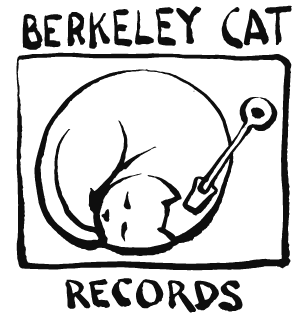Blind Lemon Jefferson – “One Dime Blues”
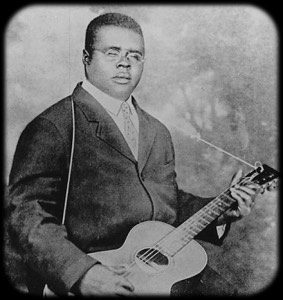
Although the subject matter of “One Dime Blues” may be cliche in the world of blues, no other artist has such a powerful cadence as the great Blind Lemon Jefferson. Jefferson’s quick-chords and toe-tapping rhythm is sharp juxtaposition with the song’s subject matter, each verse tackling the plight of the poor in the 1920s.
Kansas City Kitty and Georgia Tom – “How Can You Have The Blues?”
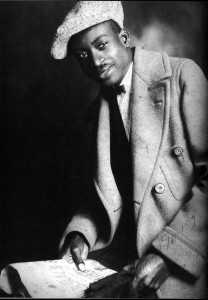 From Kansas City Kitty & Georgia Tom we get this upbeat blues number, “How Can You Have the Blues,” a flirty duet about a woman who appears to have it all, but is continually bogged down by depression. The name Kansas City Kitty may not ring any bells with the most enthusiastic American blues aficionados. It could be because there is a mystery behind the true identity of this sexy-voiced blues woman, but what we do know is that this track, recorded in 1930, features Thomas A. Dorsey, with a way out-of-character performance, on piano and vocals, playing under his popular pseudonym Georgia Tom. With its fantastic melody and conversational blues style, this number lends truth to the idea that money can’t buy you happiness. I chose this “Back in Time” version because it sounds the best.
From Kansas City Kitty & Georgia Tom we get this upbeat blues number, “How Can You Have the Blues,” a flirty duet about a woman who appears to have it all, but is continually bogged down by depression. The name Kansas City Kitty may not ring any bells with the most enthusiastic American blues aficionados. It could be because there is a mystery behind the true identity of this sexy-voiced blues woman, but what we do know is that this track, recorded in 1930, features Thomas A. Dorsey, with a way out-of-character performance, on piano and vocals, playing under his popular pseudonym Georgia Tom. With its fantastic melody and conversational blues style, this number lends truth to the idea that money can’t buy you happiness. I chose this “Back in Time” version because it sounds the best.
Alonzo Yancey – “Everybody’s Rag”
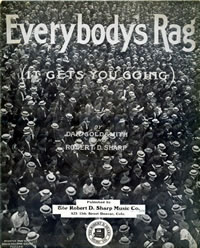
Ragtime is known as “the music that got lost” – mostly because jazz stole its thunder and captured the public’s attention after 1917. Ragtime showcases brilliant pianists like Alonzo Yancey, the lesser known of the Yancey brothers. Alonzo, raised in Chicago, recorded “Everybody’s Rag” in 1943. He serves his piano straight up, and one can only imagine what it’s like to move your fingers as fast as this melody requires. A compelling and ferocious performance.
Jelly Roll Morton – “I Thought I Heard Buddy Bolden Say”
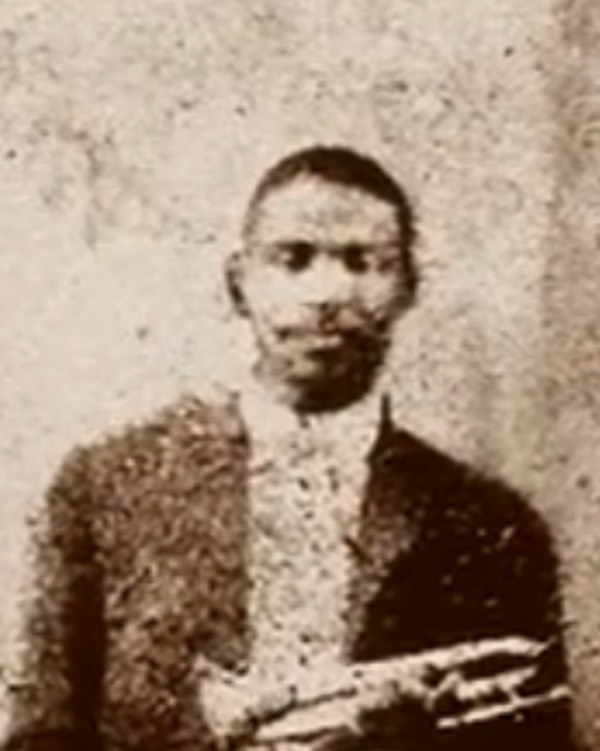
Rare image of Buddy Boldon
The man who claims he invented Jazz, Jellyroll Morton, wrote this song in tribute to the 1st man to play the coronet in what was referred to as ragtime, or Jass. Known in the Jazz community as “King” Bolden, Buddy was a New Orleans bandleader in the early 1900’s featuring an improvisational style that supposedly led to more musical experiments, and finally Jazz. Although I couldn’t find any Buddy Bolden recordings, here’s the next best thing, the inventor of Jazz, singin’ about his hero.
Woody Guthrie – “Tear The Fascists Down”
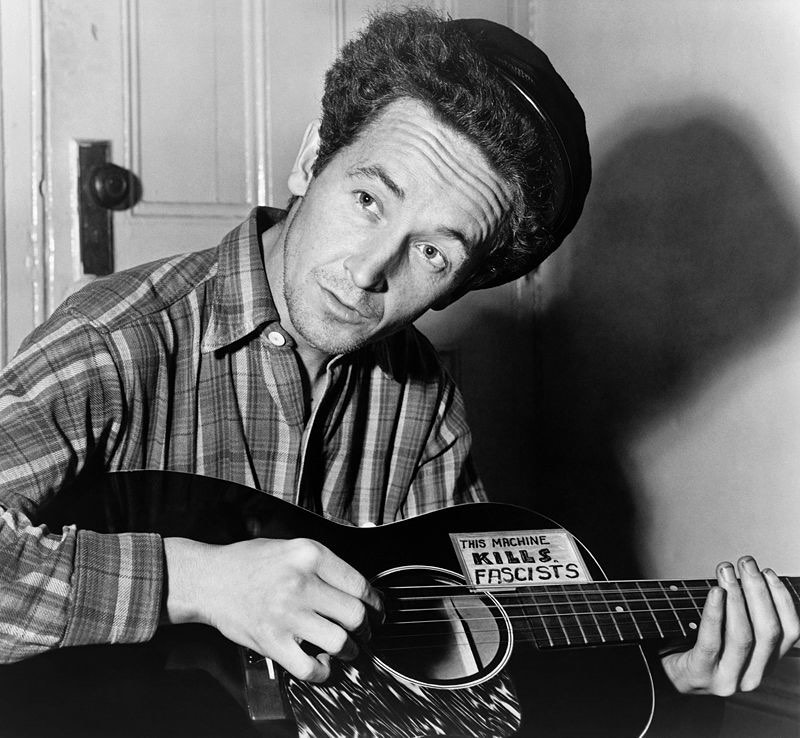
This man is a towering figure in the American Folk scene, writer of “This Land Is Your Land” who influenced so many of the great American songwriters (Bob Dylan for example.) He hated fascists so much he wrote this song about the rampant ideology tearing Europe apart.
Scrapper Blackwell – Nobody Knows You When You’re Down and Out
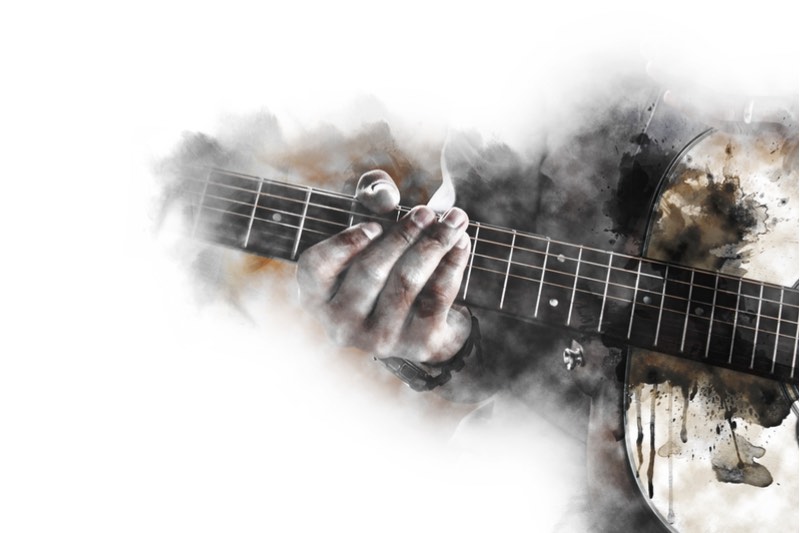
It took me a while to adjust to Scrapper’s guitar playing. Not only is he a self-taught guitarist, he built his own guitar out of a cigar box and wire. As you can guess by his name, he was a rather fiery character better known as part of a duo with Leroy Carr, they had a hit with “How Long Blues” and toured most of the Midwest. This song defines the “Blues.” I highly recommend this and have grown to like Scrapper’s guitar style.
Bo Carter – “Your Biscuits Are Big Enough For Me”
Bo Carter was the leader of the Mississippi Sheiks. In 1928, he recorded the original version of “Corrine, Corrina,” which later became a hit for Big Joe Turner. His solo work is a lot more suggestive. This song is a perfect example of Bo’s “Dirty Blues.”
Blind Willie McTell – “You Was Born To Die”
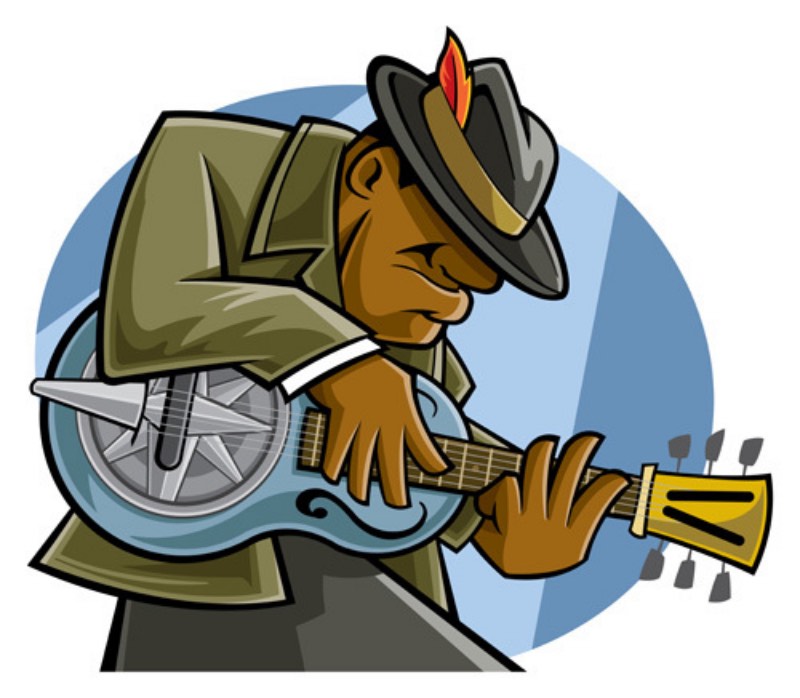
I got turned on to Blind Willie McTell @ publicdomain4u.com. I looked for more and found it. This song has haunted me for days. This renowned artist has an annual Blues festival named after him, honoring his contributions, but this was the only version of this song I could find. He was supposedly accompanied by his wife. Sadly little is known about this remarkable recording.
EARLY JAZZ WITH A HAWAIIAN THEME
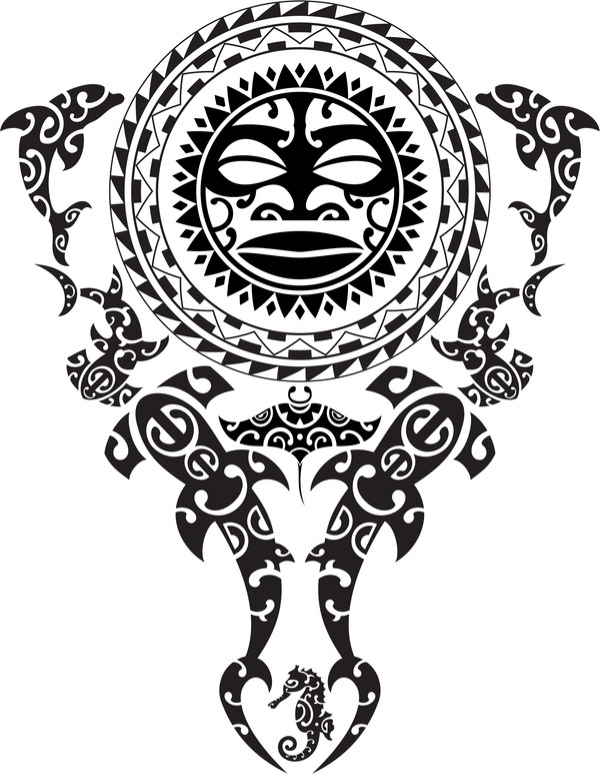
Any 78 record collector has seen the name of Ben Selvin, who might have been the most prolific band leader of the 78 RPM record era. He also voiced early opposition to radio. This song “Don’t Say Aloha, When I Go” is early jazz at its best. This song has been recorded by many. This version by The Columbians is by far the most noteworthy. There is so much I don’t know about this version, but it’s great.
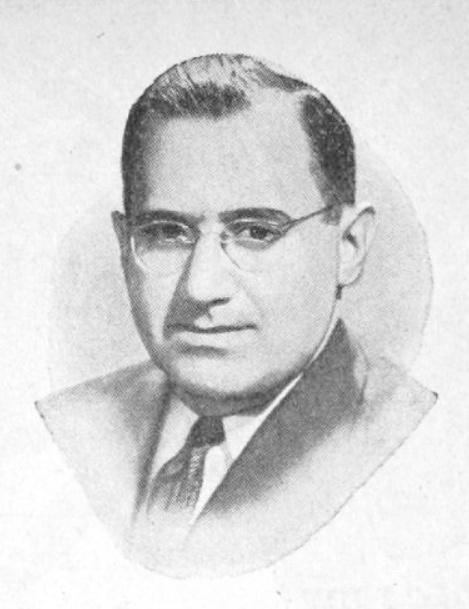
Ben Selvin
FIND THIS RARE TRUMPET RECORDING FROM THE BEST MUSIC LIBRARY ON OUR PLANET
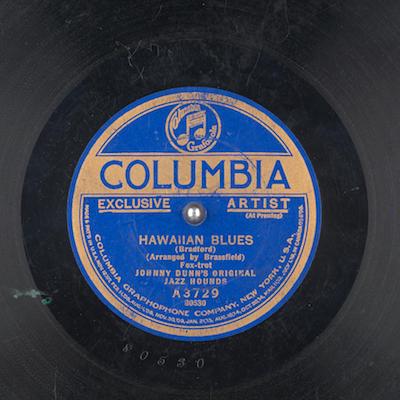
Noble work from Brewster Kahle, who founded the Internet Archive. They compiled a treasure trove of music recorded when the recording industry was in its infancy, and records were cylinders, or 78 RPM discs. From this collection I’ve learned so much about music that was made before I was born. Converting these recordings to digital storage is complex, and done by music-loving collectors. Serving these works on-demand is the Archive’s role, as the best music library on the planet. I found this stupendous recording by Johnny Dunn’s Original Jazz Hounds (not to be confused with Mamie Smith and her Jazz Hounds.) The trumpet work is great, once you’re past the 78 needle-noise at the beginning. “Hawaiian Blues” is performed by the first lineup of the Jazz Hounds, before they added Edith Wilson as vocalist.

Listen:

